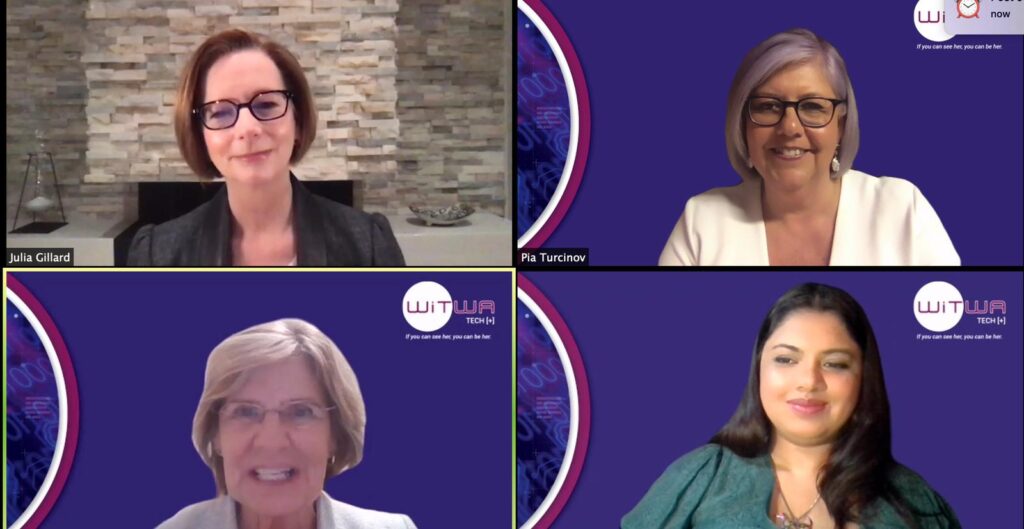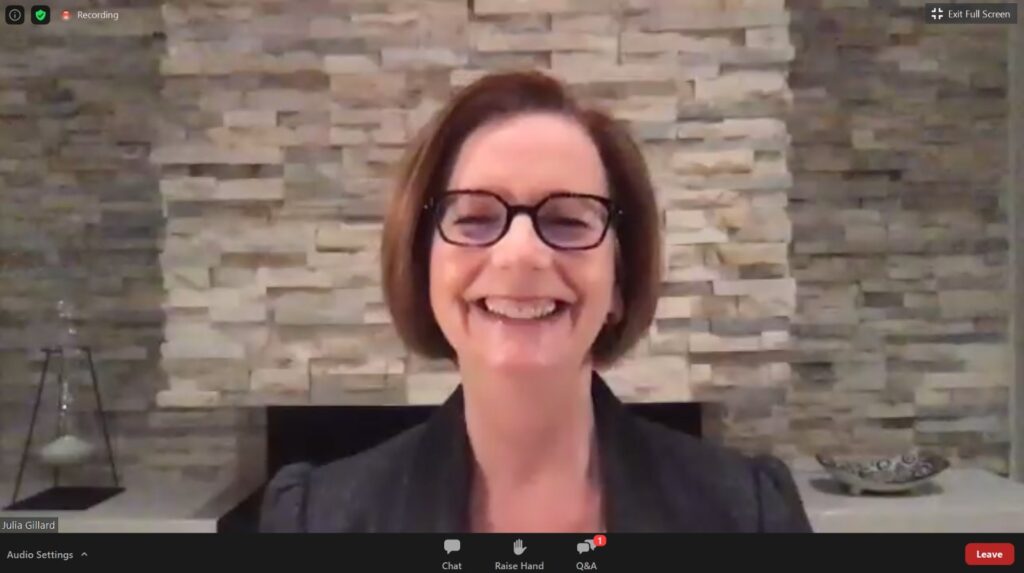On Thursday 23 July, WiTWA had the pleasure of dialling in alongside about 700 attendees to host a highly anticipated webinar with post-politics Julia Gillard.
To say we were excited would be… well… a little bit of an understatement.
So what did the queen of the iconic ‘Misogyny Speech’ have to say about female leadership?
I will not be lectured about sexism and misogyny by this man. I will not.
Julia Gillard – First paragraph of “Misogyny Speech”
And now that we’ve calmed down from our excited fangirling, what takeaways can we action to create lasting change?
The session was recorded and is available at the end of this post and on the WiTWA YouTube channel.

Sitting down to watch the webinar I expected to hear a heated discussion about the challenges of being a woman in leadership. I was not fully prepared, but delightfully surprised, to also see Julia’s face light up in excitement describing the joys of leadership and incredible experiences she had gained from her time in politics.
The balance in my experience is upside: I am incredibly positive about what I got to do (…) If you have a passion for change… there is no more impactful way to do that
Julia Gillard in conversation with Pia Turchinov – WiTWA Chair
On tips for dealing with the experiences of bias we are all too familiar with, Julia points us to her new book written with Ngozi. Their goal was to capture the similarities and differences in experiences of female leadership across different geographic, cultural, race, and religious nuances.
For those who haven’t yet received their copy – you’re in for a treat. The storytelling is well paced, at times even humorous, and contains a diverse range of voices from across the globe. But do be prepared for a decent dose of outrage – the sheer volume of ingrained stereotypes, prejudices, biases summarised in the one place really brings home what a significant global challenge we face together.
And indeed Julia and Ngozi’s book also seeks to help women and their allies understand “that there are times you will be treated differently solely just because you are a woman and that there are practical ways to deal with that… to not let it deter you”.
On the topic of typically “female” vs “male” leadership qualities – quite in the spotlight at the moment with how different governments have handled the Covid19 pandemic – Julia points out that while we are socialised differently, men and women’s brains both have the capacity to lead with these qualities. That a mix of both “command control” leadership and compassionate, enabling leadership is required for a successful leader. That we fail as a leader no matter who we are if these are blended disproportionality. And that we should expect these traits of both genders; not put the burden of empathy on one gender or the other.
While these lovely statistics and strategies might help us at a structural level to understand what change should look like, it’s often through sharing our stories, journeys and experiences at a personal scale that we can build a better understanding of how to deal with it in our daily lives as humans.
Get yourself a copy. Grab a hot chocolate, and dive into some tales from the trenches for a real good read.

And would you take a look at that smile, we think Julia had a pretty good time too just quietly!

Check out the video recording here:
